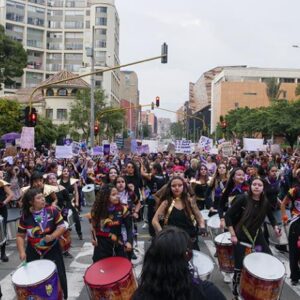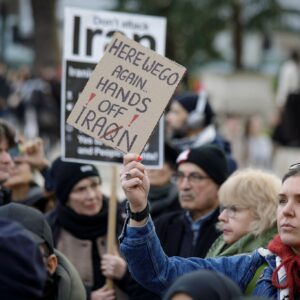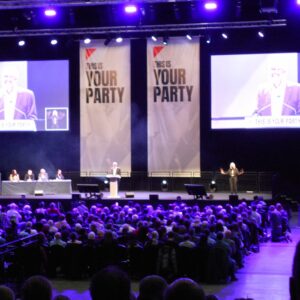- We are paying for it
It is estimated that the taxpayer will contribute up to £100 million. We are all paying taxes, and wage workers proportionally pay more taxes than the rich. It is not as though the Royal Family does not have plenty of wealth accumulated over the centuries through expropriation of land, feudal dues, colonial empires, and slavery. No wonder the government studiously avoids giving any breakdown of the real costs. What is interesting is that polls show 51% think the royals should pay for their own coronation and leave our taxes to help deal with the dire crisis in the NHS.
- Support for the monarchy is declining, particularly among the young.
Support for a republic is steady at 25 to 26% in recent polls and has been up by five points or so in recent decades. Surveys show 31% want a referendum on the question. Around two-thirds of the population still support the monarchy, down from three-quarters since the 1990s. If you add the increasing numbers of people who want a slimmed-down or modernised monarchy and add them to the republicans, then supporters of the status quo are barely half the population.
Rising opposition to the union and support for self-determination in Scotland and Wales is weakening the popularity of the royal family there. If the progressive side is beginning to gain more support, there is even more reason for the socialist left to get out there and support the various Republican campaigns. We can agree that placing a demand to abolish the monarchy as a key plank in the Corbyn manifesto would have been tactically inept, but there is no reason for the radical left not to raise the issue as part of an ongoing campaign and in political discussion aimed at winning people away from one-nation labourism.
- We reject the myth of national unity that the coronation is supposed to express.
When formerly anti-monarchist Keir Starmer was asked about his participation in the Coronation Party, he was suitably enthusiastic. He almost wet himself, saying how excited he was and being interested to know who he was going to be sitting next to. Of course, for him, this was a great occasion to show how the British people ‘come together in unity’. The essence of his tepid social liberalism is that we are all on the same ship; we can work with big business to make things fairer for workers and to bring about a green transition. All those powerful capitalists who need to exploit us every day to maintain their wealth can be convinced, in the name of national unity, to give up some of their wealth.

Where is the national unity between the shareholders of Shell or BP reaping super profits and the millions of people this winter who made themselves ill deciding whether to heat or eat? Where is the unity between older people who can afford the best private social care and the millions who are enduring terrible conditions in the community or in privatised nursing homes? Is there a national unity between people who never have any problems with the police and black or Asian youth who are regularly harassed? These royal events play an important role in reproducing day-to-day the ideology of the nation as a family. We need to unmask it.
- The royal family is the festering sore on the rotten body of our undemocratic political system.
Most countries do not have an unelected head of state or, indeed, an unelected upper house. Bishops are given places as of right in the House of Lords. It is the monarch who appoints the Prime Minister and opens or dissolves parliament. There is no written constitution. The PM has regular formal meetings with him or her. There is a huge honours system that is under the patronage of the PM via royal consent. Yes, we all know that this is a constitutional monarchy, and these powers have always tended to be used under the command of the elected government, but in exceptional situations of crisis, they could very well be used to maintain the status quo.
The Royalty connects these threads of a political system that is less democratic for working people than even other European countries such as Italy. Some of the left, even the revolutionary left, seem to think that, like the anti-democratic first past the post electoral system, these issues are secondary to some real class struggle going on somewhere else. Opposing the monarchy should be part of a general critique and opposition to the antiquated British constitutional arrangements as a whole.
- The monarchy reproduces a religious ideology that no longer has majority support.
The Archbishop of Canterbury continues to anoint the British head of state with holy oils as though God had chosen him. The entire coronation demonstrates the integration of the protestant Church of England as the recognised state religion, despite the modifications made this weekend to allow for the participation of other religions. Hardly anyone goes to CoE religious services, and all polls show Britain as a secular society. The national anthem and the now notorious proclamation of loyalty to the monarch all reference God. Surely the head of state should represent the reality of British society today?
- We are citizens, not subjects, and we reject any oath of allegiance.
The suggestion that we all recite the oath of allegiance that the peers of the realm typically utter at a particular point in the ceremony has received a lot of attention during this coronation. According to what Jonathon Dimbleby, a confidante of Charles III, claims today, this was all a put-up job by Welby, the Archbishop of Canterbury. The latter has retorted that the liturgy was produced as a collaborative exercise. This makes it look like Charles has taken a step back given the reaction—part outrage, part ridicule. Certainly, this sort of mass public shouting of allegiance smacks a bit of fascism or Stalinist regimes and does not sit well with British ideology, which would never countenance such practises. Starmer’s Labour Party, of course, did not react at all to the proposal. If we are to make progress with the building of a socialist alternative, we have to cross the threshold of people seeing themselves as subjects at the very least.
- Reject the spectacle; we can come together and enjoy more harmless rituals or collective struggles.
Royal occasions are today fully integrated into the capitalist spectacle of celebrity and contrived mass events. People like to get together, meet new people, and be involved in community events. There’s no harm in that at all. As socialists, we want more of that, and mass strike struggles often produce the same feelings. Most of the inevitable vox pop interviews with the people camping out on the mall include references to the atmosphere and the camaraderie. The problem is that all that is coming together is around a circus, which really honours a privileged elite and amounts to passive consumption with little positive participation. Even mass sporting events are less toxic to constructing our view of the world. Community or charity efforts like organising a food bank are better, and collective wage or political struggles, such as we have seen in the last year, are even better.
- Rejecting the Coronation means rejecting colonialism and slavery.
The Guardian has recently run a series of excellent articles revealing how the wealth of the royal family is intimately connected with the spoils of empire and slavery. It was the royalty that gave official legitimacy to colonial enterprises like the East India Company. Even the crown jewels, one of the stars of the ceremony, are material expressions of the wealth stolen from British colonies. The monarch is still head of the Commonwealth, and there has been no apology for its involvement in slavery. It is no surprise that more and more Commonwealth countries are questioning the British monarch’s role within their constitutions. The Royal family’s participation in the Empire directly produced its super wealth, and we should be demanding public recognition of its role. Indeed, it would be just to confiscate its wealth and use it for reparations to those people.
What can we do today to protest?
It is a pity that the radical left could not come together to build a decent, united campaign against the monarchy. Badges and posters have been produced, but we are missing an opportunity to reach out to a lot of people, often young, who are critical and want change. The main campaign, Republic, has managed to get some publicity and is organising a protest at Trafalgar Square. Clive Lewis, a Labour MP, is saving the honour of the labour movement by speaking there. There are events in Cardiff and other places. (See the website here.) The Labour leadership has explicitly banned local parties from affiliating with this campaign. Starmer is even scared of a democratic campaign that includes the union jack in its resources! You can download and print a poster from their website to put in your window. We should look beyond the coronation junket to an ongoing campaign.

Art Book Review Books Capitalism China Climate Emergency Conservative Government EcoSocialism Elections Fascism Film Film Review France Gaza Imperialism Israel Keir Starmer Labour Party Marxism Marxist Theory Palestine pandemic Protest Russia Solidarity Statement Trade Unionism Ukraine United States of America War
Latest articles
- 8 March: Long Live Women in Struggle Against the Far RightAll over the world, women are promoting networks of solidarity, forms of protection and denunciation against all violence, whether domestic, imperialist military or fascist. Women are building forms of resistance in their territories against hunger, poverty, wars, extractivism, climate collapse and deprivation of rights. Motion adopted by the International Committee of the Fourth International.
- Ukraine UnbrokenDave Kellaway reviews Ukraine Unbroken, five plays about the history of the Ukrainian conflcit
- Solidarity with the Ukrainian peopleStatement approved by the International Committee (IC) of the Fourth International on 25 February 2026.
- US/Israel hands off Iran! No liberation through US bombs!Statement of the Executive Bureau of the Fourth International 28 February 2026
- Your Party’s New Leadership – The CEC Election And The Likely FalloutWhat are the possible consequences of Your Party’s recent CEC elections, Joseph Healy looks at this in the current political context.







The oath people are being asked to give is not just to Charles III but to his heirs and descendants: in other words to the perpetuation of monarchy ad infinitum. I believe members of the armed forces are required to swear aasimilar oath.
No stats or poll details at all here to back up what alleged facts the article so heavily relies upon. The basic requirements of any decent writer I would hope. This is an anti-royalist basing an article solely on his opinions and desires.
You may not like it but he IS your king. The position of king is not a democratic thing but a hereditary one. If his forefathers had not given up their power generations ago you could have been put to death for saying what you say and doing what you do and you could do nothing about it. You should remember that.